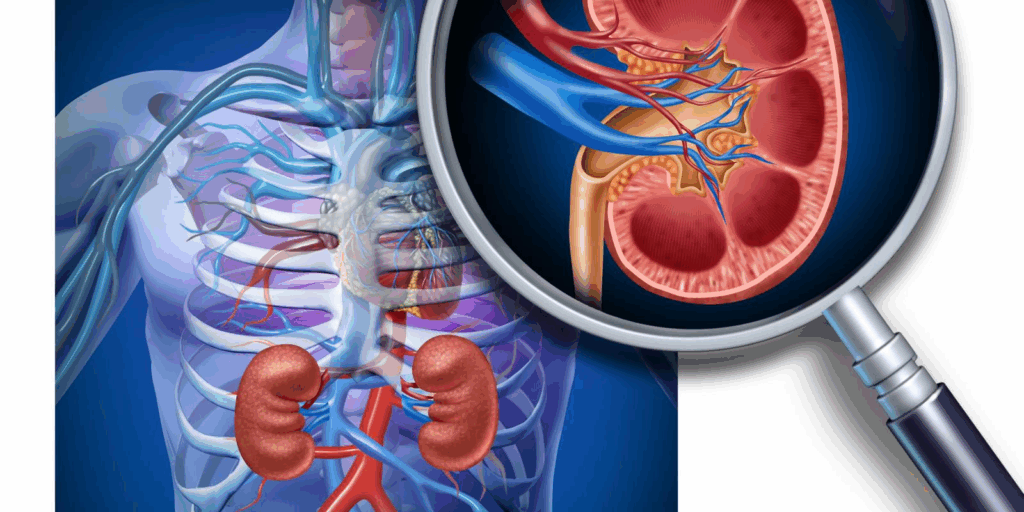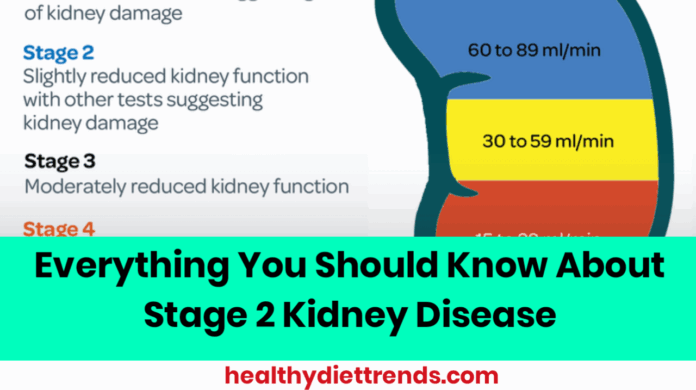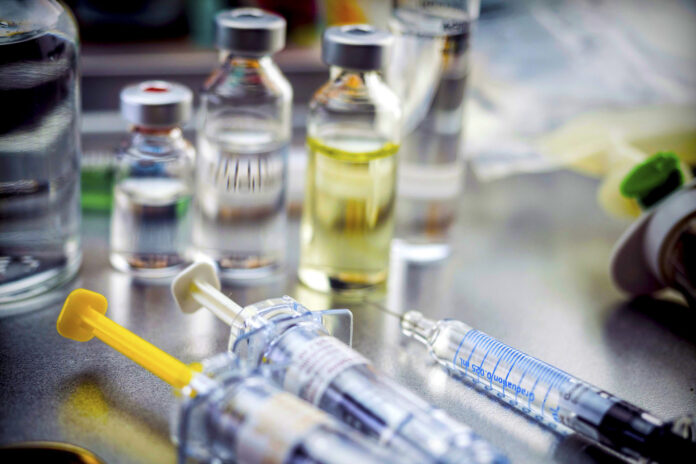Stage 2 kidney disease is mainly asymptomatic and can be difficult to diagnose early. However, with timely lifestyle changes and proper management, it’s possible to slow its progression and protect long-term kidney health.
What Is Stage 2 CKD?
Chronic Kidney Disease (CKD) refers to gradual and permanent damage to the kidneys over time. It has five stages, with Stage 2 indicating mild kidney damage. At this stage, kidney function is only slightly reduced. An eGFR (estimated glomerular filtration rate) test is used to measure how well your kidneys are working. For Stage 2 CKD, eGFR falls between 60 and 89 — still considered within a normal range, which is why many people don’t realize they have it.
Symptoms of Stage 2 CKD
Stage 2 CKD is usually asymptomatic, but some people may experience:
- Dark yellow, red, or orange urine
- Increased or decreased frequency of urination
- Swelling (edema) in feet or ankles
- High blood pressure
- Fatigue
- Muscle cramps, especially at night
- Pain in the lower back
- Dry or itchy skin
- Insomnia
Common Causes

Kidney damage in Stage 2 CKD is often due to underlying health conditions or genetic factors, such as:
- Diabetes
- High blood pressure
- Frequent urinary tract infections
- Kidney stones
- Polycystic kidney disease (PKD)
- Lupus
- Family history of kidney disease
Uncontrolled health conditions over time put extra stress on the kidneys, resulting in slow damage.
Diagnosis
Stage 2 CKD is detected using:
- eGFR blood tests
- Creatinine and BUN (Blood Urea Nitrogen) levels
- Urinalysis to check for protein or blood
- Kidney imaging (ultrasound)
It’s often discovered during routine checkups, especially if you have risk factors like diabetes or hypertension.
When to See a Doctor
Even without symptoms, it’s important to consult your doctor if:
- You have high blood pressure, diabetes, or a family history of kidney problems
- You notice urine changes, fatigue, or swelling
- Your annual health screening indicates abnormal kidney markers
Early intervention can slow progression significantly.
Treatment for Stage 2 CKD
Although you cannot reverse kidney damage, progression can be delayed through:
Medications
- ACE inhibitors or ARBs for blood pressure
- Glucose control meds for diabetes
- Kerendia (finerenone) in diabetic patients to reduce further decline
- Iron supplements if anemia is present
Diet
Focus on a kidney-friendly diet that includes:
- Fresh fruits and vegetables
- Whole grains and legumes
- Lean protein (poultry, fish) in moderation
- Low-sodium, low-processed foods
- Healthy fats from plant oils
Limit high-sodium, high-fat, and heavily processed foods. Excessive protein intake should be avoided as it burdens the kidneys.
Lifestyle Management
Daily habits play a major role in preserving kidney function:
- Stay well-hydrated
- Exercise regularly (at least 30 minutes daily)
- Quit smoking and avoid alcohol
- Practice stress-reducing techniques
- Maintain a healthy weight
- Monitor blood sugar and blood pressure regularly
Can Stage 2 CKD Be Reversed?
Permanent kidney damage can’t be undone. However, if Stage 2 CKD was caused by a temporary factor (like medication side effects or a blockage), function may improve with treatment. In most cases, while you can’t reverse CKD, you can stop it from getting worse by managing the root causes and making healthy changes.
Outlook
People with Stage 2 CKD typically have normal or near-normal kidney function. Early diagnosis offers a great opportunity to preserve that function for years. Though more common in adults over 65, it often goes undiagnosed until later stages. With regular testing and careful management, you can maintain a high quality of life.
Final Takeaway
Stage 2 CKD is manageable, especially when detected early. If you have risk factors or early warning signs, talk to your doctor about kidney function testing. Once diagnosed, focus on lifestyle, diet, and medication — and stay consistent.
Also Read : Effective Coping Techniques for Anxiety



